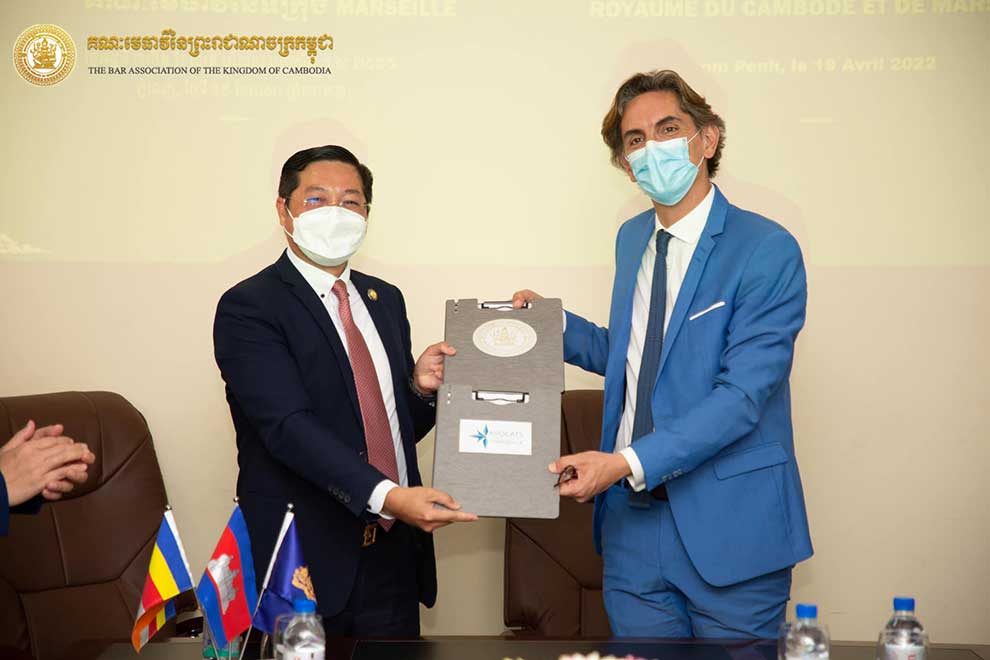
BAKC’s Ly Chantola and Bar Association of Marseille president Jean-Raphael Fernandez during the signing ceremony in Phnom Penh on Tuesday. BAKC
The Bar Association of the Kingdom of Cambodia (BAKC) signed a cooperation agreement with the Bar Association of Marseille, in France, to promote the rule of law, respect for human rights and the right to a legal defence.
According to a joint April 19 press release, BAKC president Ly Chantola, accompanied by several of the Bar’s council members and senior officials, warmly welcomed the visit of the Marseille delegation, led by its President Jean-Raphael Fernandez, to the premises of the BAKC in Phnom Penh.
During the visit, Chantola personally led the delegation on a tour of the BAKC facilities, including the lawyer training centre, the legal library and clinic, the moot court room and the meeting room of the Bar’s council.
“During this milestone visit, the presidents of the two bar associations discussed several important matters in the spirit of friendship, in particular the signing of a cooperation agreement. The visit aims to establish stronger cooperation,” the release added.
It went on to say that the two bars will endeavour to promote better relations between their members and to encourage regular meetings and exchange of experience and knowledge among their respective members.
They will organise training seminars and meetings on professional issues of common interest, with a view to improving existing legal practices and for new admitted lawyers. They will also promote the possibility of young lawyers or trainees familiarising themselves with the legal practices of their respective bars, by means of internships.
BAKC spokesman An Sovathana told The Post on April 20 that in France, the legal system is managed in a similar way to the Kingdom. Because the administrative system in France has a union of federal bar associations, each large city has its own bar. Marseille has the third largest in the country, behind Paris and Lyon.
“The Bar Association of Marseille is the third largest, and has almost 2,600 members. Signing this agreement will bring the two sides closer together through mutual training and workshops,” he said.
He added that the cooperation was the result of one of Chantola’s eight-point policies, which focused on strengthening relationships and cooperation with national and international institutions.









